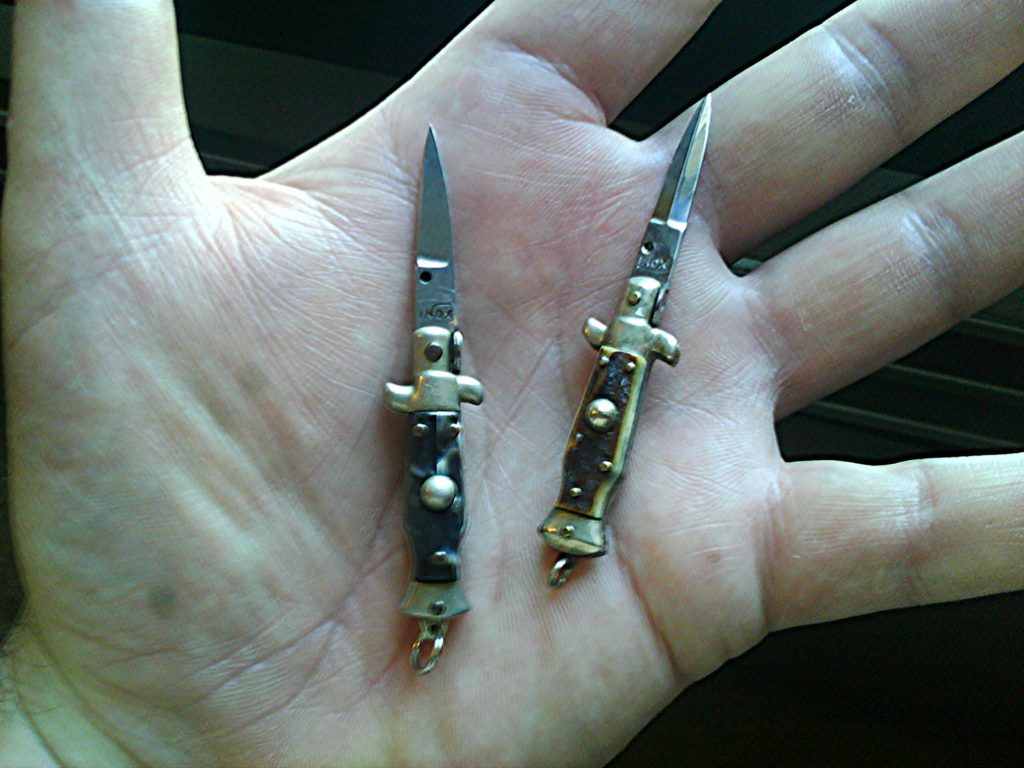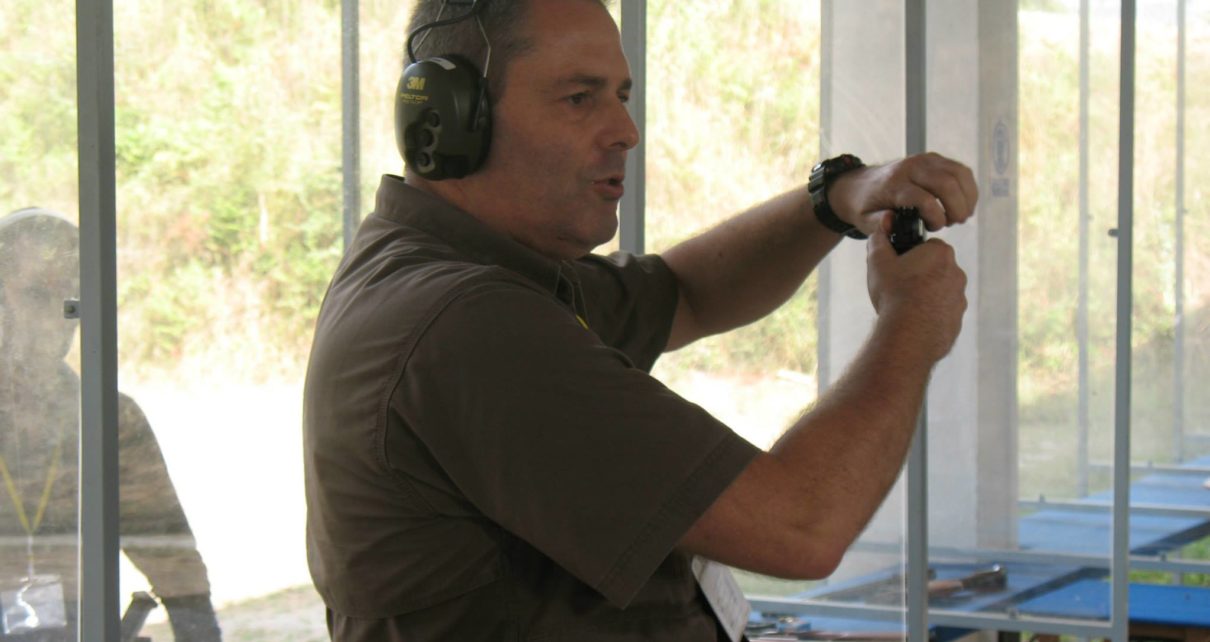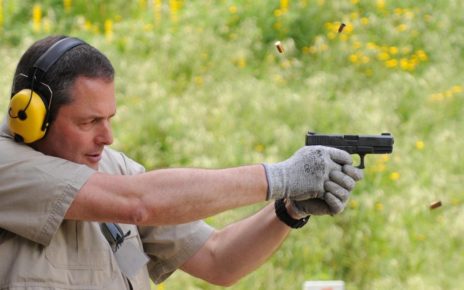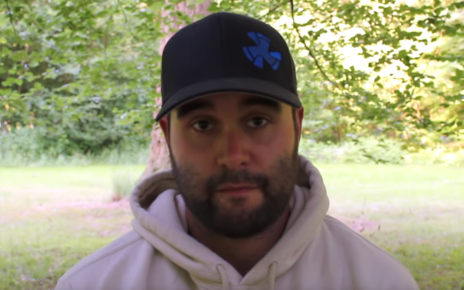Vítor Teixeira is the president of Portuguese cartridges collectors association (APCM), a long time sport shooter, firearms cartridges collector, a teacher of firearms ballistics, an expert and teacher of Portuguese “gun laws”, a consultant of Portuguese Courts on issues related to firearms and a police firearms instructor.
In the past months he became known as one of the most vocal critics of the Portuguese law proposal introduced in order to implement the EU Gun Ban.
In the first part of exclusive interview with zbrojnice.com, Vítor talks in detail about the way gun rights have eroded in Portugal in the past years.
Rozhovor v češtině si můžete přečíst zde: Rozhovor – Vítor Teixeira: Aplikace salámové metody k postupnému odzbrojení Portugalců po roce 2006
Zbrojnice.com is a Czech language web that deals with practical, legal, cultural and social issues of civilian firearms ownership. This interview was conducted in English and thus you can read it also in original language version below.
Portugal has some of the most restrictive gun legislations in the EU
Portugal has rather restrictive gun laws. Let’s go back in time to the point that you would consider acceptable. When was it? What is the main difference between that moment and now?
I must start this interview by explaining that although sometimes I will just mention “gun laws” or “firearms laws”, I will be referring to the Portuguese laws that regulate everything that is or could be considered as a “forbidden weapons”, so, not only firearms.
Portugal has the most restrictive gun laws in all of Europe, apart from the UK. But in several aspects, Portuguese weapons law is more severe and extremely perverse because it has a lot of dubious subjective prohibitions. Therefore, our law is – by far – the worst I know in any democratic country. I believe it violates Constitutional Rights and the basic structure of our legal system that is constructed around the principles of the Portuguese Republic Constitution.
The Portuguese legal regime regarding weapons had a radical change in 2006. Before that, the law was based on a 1949 enactment. This underwent some minor changes in 1975 and later more significant changes in 1997, 1998 and 2001. Although quite old, it was a well constructed legal regime in terms of objectivity, technical definitions, and very well balanced when it comes to rights vs. prohibitions.
In 2003 the Government created a special committee. It’s alleged aim was to simplify legislation regarding firearms and weapons. Then in 2006 they proposed what became known as the new weapons and ammunitions legal regime “Regime Jurídico das Armas e suas Munições”, generally called as “RJAM”.
This new package of laws was a total fiasco, being significantly more complicated than the previous law. It included two major enactments – the base law No. 5/2006 and the sport/gun collection law No. 42/2006. Plus several decrees, dispatches, regulations and a vast multitude of lesser legislative acts.
Just the Act No. 5/2006 alone is more complicated and larger than all the laws that existed until 2006 combined. When gathered together with all the other new legislative acts, things became even more complicated and difficult to understand.
All these problems were aggravated because this new regime was, and still is, based in “legal definitions” and “legal classifications” that have several technical mistakes and are so ambiguous that they can be interpreted in various ways.
Meanwhile powerful anti-gun lobby was seeking further restrictions. And they succeeded. The base law No. 5/2006 underwent a major revision by Act No. 17/2009. Five more amendments followed ending with Act No. 50/2013 that has been the last major change in force until today. Now we are facing further changes in connection with the EU Gun Ban.
Every time the law was amended, more ambiguous norms and “definitions” were introduced and more items became legally classified as “forbidden weapons”.
Was there any kind of grandfathering for the newly banned items?
No. If you buy a gun in a perfectly legal way and you own it because the law in that moment guaranties that it is legal, there is nothing that protects you, nor your property, if the next day the law changes and the guns you legally bought and own becomes forbidden. You can’t keep it anymore, and if you do, you will commit a criminal offense that is severally punished.
Changes of the original Act No. 5/2006 always lead to a more restrictive regime. Many items that were legal by 2006 became illegal and are now considered “forbidden weapons”…
And there is no end to that.
The EU Gun Ban implementation proposal now exceeds everything we have seen so far in terms of absurd prohibitions, abuse of power, disregard for private property and increase of subjective and dubious prohibitions. It is now being discussed by the Portuguese Parliament.
Piecemeal erosion of gun rights in Portugal
So the erosion of gun rights in Portugal was gradual. Could you describe the main steps?
First we were confronted with a completely new legal regime introduced by the Act No. 5/2006 which prohibited some items that used to be perfectly legal, for example blank firing guns, ammunition and silencers, a lot of bladed items, even airsoft reproduction, etc .Nevertheless, that regime also permitted the legal possession and use of previously forbidden firearms, such as pistols of calibers superior to 7,65x17mm and revolver over .357 Magnum, although only to the B class owners or for sport and collecting purposes
Then came Act No. 17/2009 which substantially increased the number of dubious definitions and subjectivity of prohibitions and banned more items. For example the blade length became irrelevant in terms of prohibitions of certain knifes, the criminal sanctions augmented the prison penalties, and, most of all, the subjective norms increased the discretionary power attributed to the Director of the Portuguese Security Police “Polícia de Segurança Pública” (PSP). The number of “legal definitions” increased substantially as well as their subjectivity, for example, the “semi-automatic long arms with the resemblance of automatic weapons for military use or security forces” became forbidden. This time people were affected significantly.
Note: Vítor works with the Criminal Police (PJ) which is a different entity from Security Police (PSP) that is responsible for oversight of civilian firearms ownership.
And I am not only referring to firearms. In fact, many things that are regularly used as tools, ornaments and even toys, could be classified as “forbidden weapons”. Some of those are not, and cannot, be used as weapons.

Then came Act No. 12/2011 with more new restrictions related to the use and transportation of legal firearms obligations that affect only legal gun owners.
It also introduced new prohibitions, and changed in a more complex way some legal definitions, all ammunition with expansive bullets became strictly prohibited except the ones used in hunting. A specific example: the prohibition of rifles and shotguns that resemble “war weapons”. Due to that change, several legally owned firearms had to be reclassified from “C class” to “A class” and could not be used any longer.
Those firearms owners had to apply for a different permit that restricted them firearms to what we call “house detention”. That means the owner cannot have any round of ammunition that could fit those guns and the guns must be kept inside a vault or a safe house. Never being able to be used for any purpose than the simple possession inside that specific house, locked in a vault and without ammunition.

Then came Act No. 50/2013 which prohibited firecrackers as well as most fireworks devices, and increased the amount of places where “weapons” are considered absolutely forbidden. This prohibition is stated in infamous “article 89” that forbids almost everything anywhere, even legal weapons and the ones that are not subjected to licenses. For example, as absurd it may be, it is a criminal offense punished with up to 5 years in prison to possess a knife (10 cm blade) inside a school kitchen or even in a rural market where those knives are being sold. The same applies to several other instruments; some of those are not weapons at all…
And now the Government came with the EU Gun Ban implementation that introduces another round of restrictions.
Too effective anti-gun lobby
What was driving the policy changes behind new restrictions? Is Portugal facing significant rates of gun violence? Are legal firearms often used by criminals?
In two words: anti-gun lobby.
Portugal is one of the safest countries in the world. That is a fact supported by official data. The crime rate has been decreasing significantly for successive years. We are enjoying one of the lowest rates of intentional homicides and violent crimes. Even the Government mentions that quite often, so the changes in weapons law have nothing to do with gun violence.
The so called “gun crimes” are uncommon in Portugal and analysis of those crimes makes it clear that almost all are committed with illegal an unregistered guns. But that is never mentioned in the propaganda of the anti-gun lobby.
Sometimes criminals use modified blank firing pistols or revolvers. These are modified into firearms able to fire small calibers, such as 6,35 Browning (.25 ACP) and .22 Long Rifle ammunition. A small number of stolen firearms is also used by criminals. Typically shotguns with sawn-off barrels and stocks.
Real professional criminals used to have high-quality firearms, such as 9x19mm, .45 ACP pistols and even submachine guns and assault rifles, especially the AK variants and clones. Those typically came from ex-Yugoslavia conflict or from the Eastern Europe. However a series of investigations conducted by the Portuguese criminal Police (Polícia Judiciária) dismantled gun trafficking circuits that used to feed our country with firearms from abroad. So in more or less past 15 years those firearms became rare.
We don’t have any official statistics on that, however as an expert and court consultant I believe that since 2010 the majority of stolen legal firearms came from Government warehouses. Typically Army and Navy military barracks and Police (PSP) arsenals. There are ongoing investigations that I can’t talk about yet. However others are publicly known and they have been reported by the press.
So we have this paradox in which the State is imposing vast and sometimes absurd security obligations on the citizens that own legal firearms, but the state of stolen weapons that reach black market.
What changes are being introduced as part of amendment stemming from the EU Gun Ban Directive?
Basically, the Portuguese Law Proposal doesn’t have to change much due to the EU Gun Ban. Apart from the magazine limitations, Portuguese law is already far more restrictive than the Directive.
So the Government uses this Directive as an scapegoat to introduce substantial restrictions onto a regime that is already too restrictive, highly complex, and quite unfair due to its ambiguity, for example class C rifles or shotguns will became illegal if they have more than one weaver rail, or for having a stock with pistol grip! Why is that? No one knows. But several other prohibitions equally absurd are part of that Law Proposal. Furthermore, there is now something absolutely new; the “home detention” licenses will be rescinded and the firearms included in those will have to be deactivated. That implicates paying for the deactivation and the total loss of commercial value.
All licenses are to become more difficult to obtain. Licenses for defensive use will be impossible to obtain. Obligations of legal firearms owners increase into unrealistic ways.
A failure to comply with some obligations, or some minor infractions that are not crimes will be more severally punished and lead to the person never being able to have any license. This represents a major disrespect for the Portuguese Constitution, since all perpetual penalties are unconstitutional. Furthermore, there will be a limit for the amount of rifles and shotguns owned by C and/or D licensees that is 25 maximum (the B and B1 are already restricted to 2). This limit does not apply to the collectors, but collecting firearms has several legal and economic implications and has nothing to do with hunting, for example, so applying for a collectors license won’t be possible for most of people.
Even members of the Portuguese Armed Forces and of different Police forces, will be treated the same way as regular “civilian” users of firearms, instead of having their own distinctive and specific legal regime. The director of Polícia de Segurança Pública (PSP) will became the major national authority in firearms related issues, and will have immense power, inclusive over the Ministry of Defense and over some subjects related with the Ministry of Foreigner Affairs.
The “funny” part of this Law Proposal is that the members of the Government, of the Parliament and the Magistrates will keep their rights to have B class firearms and don’t even have to prove they need it, nor they need to have courses or whatever, to buy and own those guns.
No lessons learned from Portuguese-speaking Brazil
Brazil comes to mind as example of an extreme gun control. Firearms were banned in Brazil for all practical purposes after 2003 and the crime there went through the roof. Does situation in Brazil have any effect on the policy debate in Portugal?
No. Not at all!
Unfortunately debating gun laws is not customary in Portugal. The debate we have right now was initiated by a “people’s petition” that we launched. That first petition gathered more than 8.000 signatures in a few weeks and it was sent to the Portuguese Parliament. That petition was analyzed in a record time by the Parliament. Just two days before the Government introduced the new Law Proposal. As it was analyzed at a time the Law Proposal hadn’t been formally presented, it was then formally discarded.
So we started another public petition and gathered 4.600 signatures in a record time. This time it seems that the Parliament will take all of the 60 days before formally accepting the petition. Meanwhile the law proposal might be approved and our petition would become obsolete again.
It does not take a conspiracy theorist to consider this process very strange.
In some countries like Germany a gun owner can have their firearms confiscated due to the political opinions they hold. Are there similar concerns in Portugal?
No. However, do not give our Government that idea, because they might use it.
Interview with Vítor Peixeira:
- The gradual erosion of gun rights in Portugal since 2006
- Current state of gun laws in Portugal – even pepper spray licences are becoming unobtainable
- Firearms & Vítor Teixeira, Portuguese spot-shooter, police instructor and court expert on firearms



